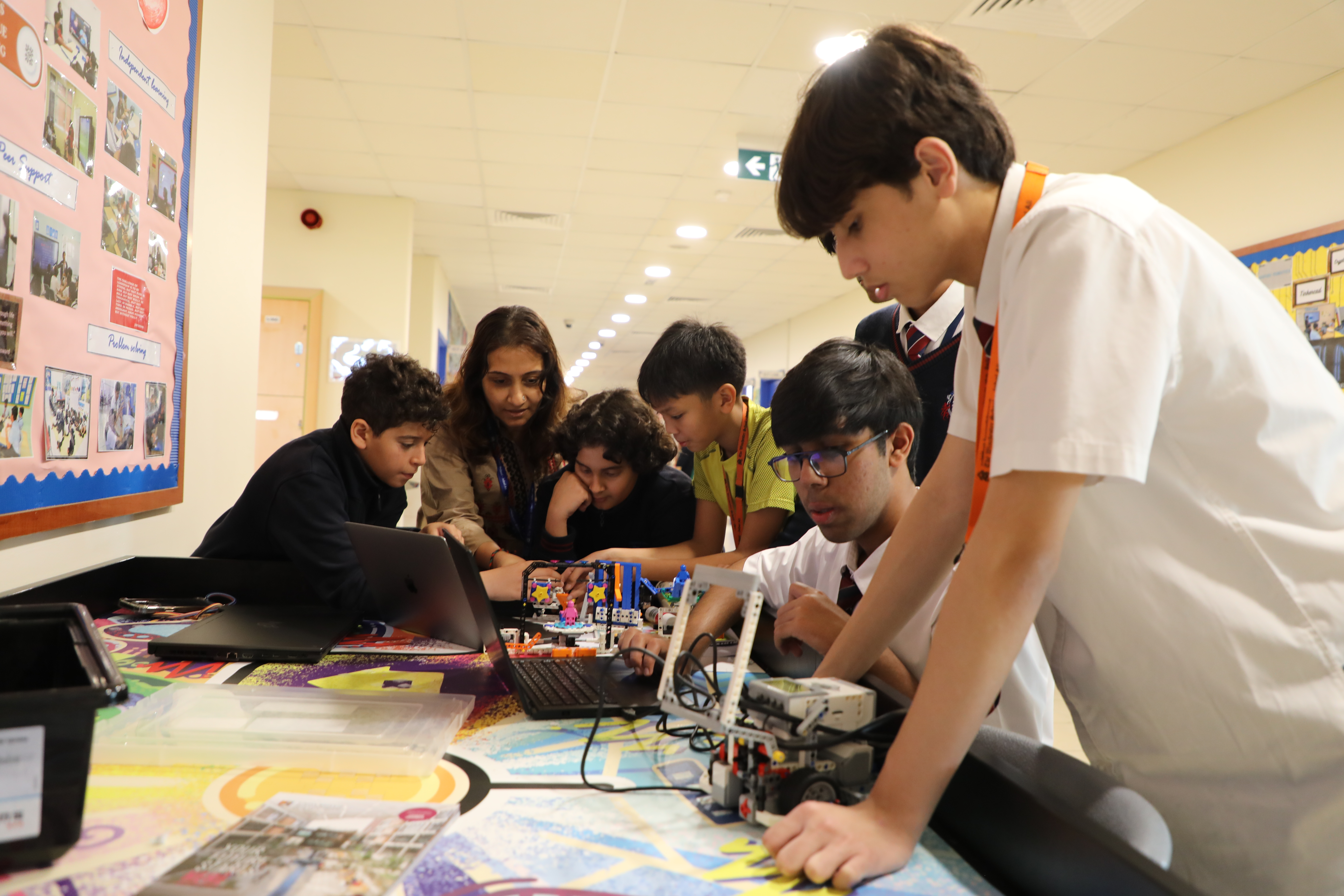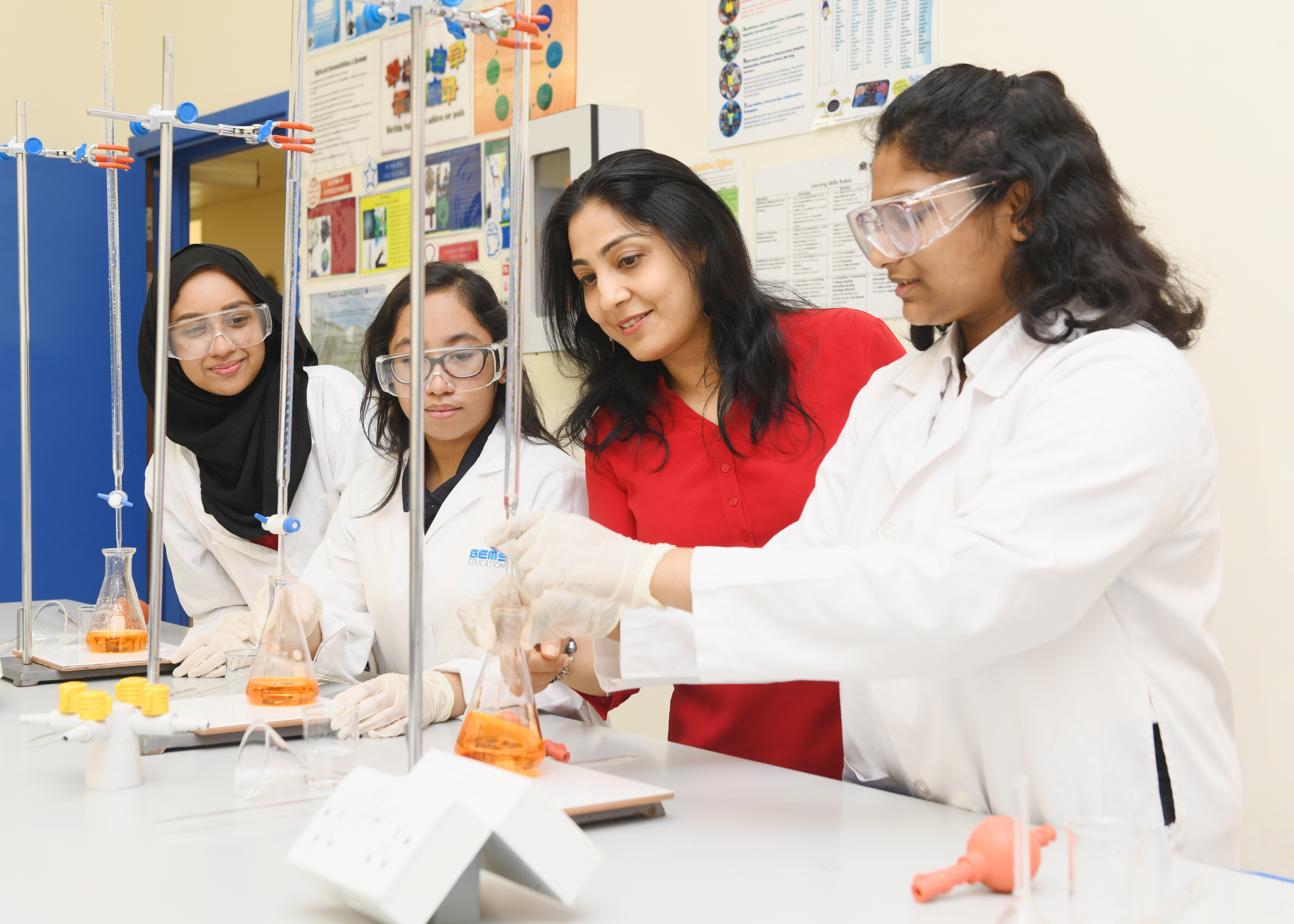
Mathematics Department - Secondary
Head of Department: Ms. Tahmeena Khan
Email ID: [email protected]
Department Philosophy
The ultimate aim of the Mathematics Department is to maximize the mathematical potential of each student, regardless of ability. The department strives to make teaching informative, interesting and inspiring. Specifically, we aim to strengthen and develop mathematical knowledge and skills, develop the ability to think logically, help to understand the relevance and application of mathematics in a real-world context, and help appreciate the power and beauty of mathematics. Equally important is to enable the acquisition of a suitable foundation in the subject in order to facilitate further study in mathematics or related subjects.
We ensure that students will
- engage in mathematics classrooms that stimulate curiosity, create enjoyment of mathematics, and develop depth of understanding;
- experience higher levels of academic achievement that eliminate inequities and achievement gaps between student groups.
Key Points from Department Policy
- Encourage the use of Mental work to develop and secure pupil’ calculation strategies and rapid recall skills;
- Devote a high proportion of lesson time to direct teaching of whole classes and groups, making judicious use of textbooks, worksheets and ICT resources to support teaching, not replace it;
- Demonstrate, explain and illustrate mathematical ideas, making links between different topics in mathematics and with other subjects;
- Use and give students access to a range of resources, including ICT, to model mathematical ideas and methods;
- Use and expect students to use correct mathematical vocabulary and notation;
- Question students effectively, asking them to demonstrate and explain their methods and reasoning, and exploring reasons for any wrong answers;
- involve students and maintain their interest through appropriate challenging tasks
- Differentiation around work common to all the students in a class, with targeted, positive support to help those who have difficulties with mathematics to keep up with their peers.
- Smooth the transition for students between key stages and ensure progression in teaching and learning throughout their time at School;
- Explore enrichment opportunities outside the curriculum to enhance students’ enjoyment of mathematics.
Assessment Procedure
- Key Stage 3 – Formative Assessments forms an integral part of every lesson. Students are encouraged to use the rubrics to assess their learning and set targets. We assess children's work formatively through individual/group projects, individual/group research, class discussions, cross curricular linking, linking UAE, making real life connections and effective questioning.
- A Summative Assessment is done at the end of term 1, 2 and term 3. Based on the Summative and Formative assessments student’s level of attainment are identified, new targets are set and shared with the students and parents.
- 100% Written assessment for IGCSE, AS and A levels.
Useful Subject-specific websites
- www.kutasoftware.com
- www.nrich.maths.org.uk
- www.bbc.co.uk/bitesize
- www.math-drills.com
- https://www.savemyexams.co.uk/igcse-maths-cie.html
- https://mathsmadeeasy.co.uk/
- https://onlinemaths.cambridge.org/
- https://www.mathsgenie.co.uk/resources
- https://www.cazoommaths.com/
- https://mrwilliamsmaths.wordpress.com/















